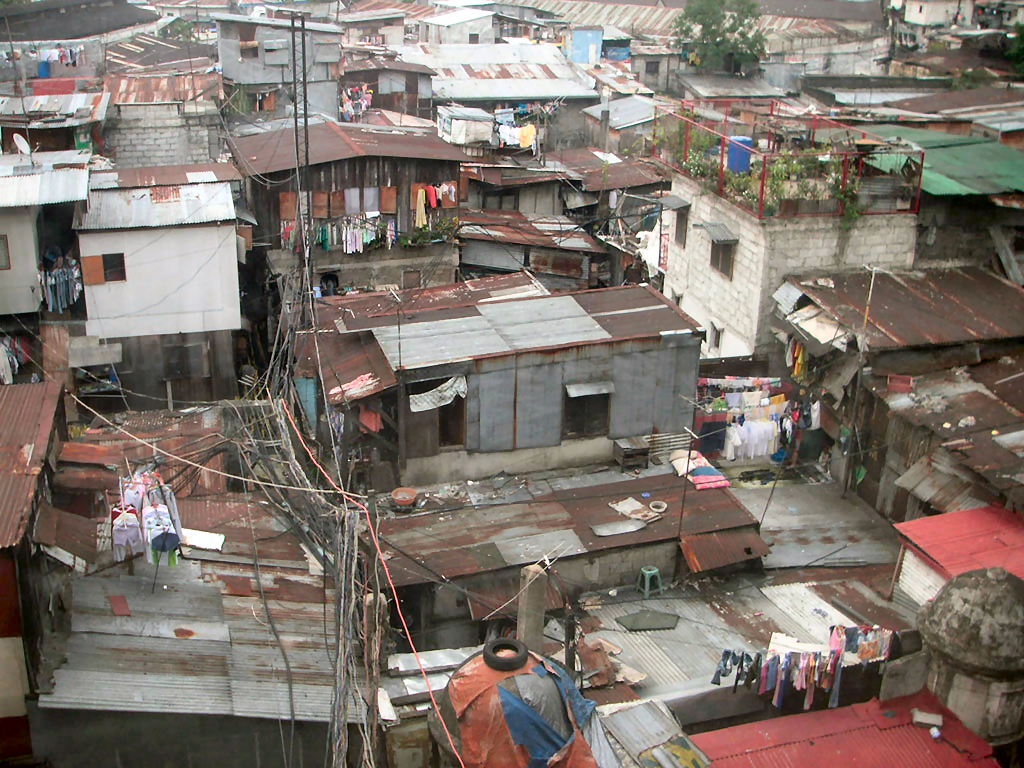
“Asia’s Bastion of Western Democracy” —– Really?
Why Charter Change is CoRRECT™
It is not only the CoRRECT™ thing to do, it is also the CoRRECT™ thing that should have been done ages ago. Not having done it when we should have is precisely the reason the Philippines has long since ceased to be viewed as “Asia’s Bastion of Western Democracy” and instead, the wider Asia region and the rest of the world unenviably looks at us as “Asia’s Basketcase of Wasted Democrazy.”
The term “Charter Change” first came to the fore sometime near the mid-1990’s in the middle of former President Fidel V. Ramos’ term. I was a Computer Science student at the Ateneo de Manila University at the time and it generated a lot of attention in school. Most of it was presented in the press in piece-meal fashion, raising related issues separately such as “Unicameral versus Bicameral”, “Presidential versus Parliamentary”, and lastly “Unitarism versus Federalism.”
 Most people didn’t really understand what “Charter Change” was. The term by itself was ambiguous and confusing. People didn’t know what a “charter” was or why the word “charter” was being used instead of just directly referring to the Constitution. Say “Charter” and most people thought “Hmmm, Chartered City?” (Philippine Cities that officially report directly to the national government, and not the provinces to which they belong) Others were reminded of “chartering an airplane” or renting a “chartered bus.” Some thought of “Chartered Financial Analyst” or “Chartered Accountant.” Others were reminded of an old British bank whose historical Philippine headquarters was in Iloilo City, and later merged with another British bank to create today’s “Standard Chartered Bank.”
Most people didn’t really understand what “Charter Change” was. The term by itself was ambiguous and confusing. People didn’t know what a “charter” was or why the word “charter” was being used instead of just directly referring to the Constitution. Say “Charter” and most people thought “Hmmm, Chartered City?” (Philippine Cities that officially report directly to the national government, and not the provinces to which they belong) Others were reminded of “chartering an airplane” or renting a “chartered bus.” Some thought of “Chartered Financial Analyst” or “Chartered Accountant.” Others were reminded of an old British bank whose historical Philippine headquarters was in Iloilo City, and later merged with another British bank to create today’s “Standard Chartered Bank.”
Quite often, it was condescendingly made fun of by conjuring images of the popular Latin dance called “cha-cha” which just goes forward and backward. Worse, enemies of the initiative (most of whom either had vested interests in sticking to the status quo or were just plain ignorant of the facts) and even uninformed members of the public demonized it as being essentially limited to only the shift from a presidential to a parliamentary system or a scheme to lift term-limits, stating that this was a bid to allow the incumbent president at the time the chance to stay in office beyond the 1987 Constitution’s 6-year term-limit. Little thought was placed by most members of the public into realizing that any slight change that had to be made to the 1987 Constitution, be it a change in punctuation, a deletion of a word or line, or placing in any additions that could make clarifications to the existing text, ultimately required grand nationwide initiatives such as a full-scale “Charter Change” movement, just to make little revisions.
Worse, the term “Charter Change” was extremely vulnerable because of the word “change.”
Instead of clarifying that this was specifically a change for the better, simply calling it “charter change” opened it up to the criticism that the Constitution was being changed, not necessarily for the better, but in order to serve so-called “ulterior political motives.” Obviously, very few Filipinos at the time really cared to analyze the bigger picture and the wider implications as to why the 1987 Constitution needed some changes in the first place. Worse, when compared to today, the Internet was not yet in full-swing as it is now, and on-line resources for doing extensive research were just not available to the ordinary Juan, Pedro, and Procopio. Real research required the extra steps of going straight to a public or university library, using the Dewey Decimal System, and walking through rows upon rows of bookshelves looking for a reference book that could clarify certain matters.
Fast forward to 2011. We have broadband internet. We’ve got relatively cheap access to internet cafés. Free WiFi is found in many different places including selected McDonald’s and all Krispy Kreme outlets, and even SM and Robinsons have made it available in their malls. Almost everyone who knows how to use computers knows how to use Google.
And yet until today, despite the easy availability of information and ease of doing research via the Internet, far too many Filipinos are unfortunately still unaware of what “charter change” is really all about and why it is necessary. Mainstream Media, owned and operated largely by the mostly inbred and well-entrenched selfish oligarchy, with some employees and staffers who were themselves brainwashed years back in school by certain anti-business political persuasions, succeeded in keeping the mainstream Filipino public ignorant and uninformed about the need to make the necessary changes to the faulty, flawed, and pro-oligarch 1987 Constitution.
Worse, most Filipinos weren’t even interested in the first place to find out what the structural and systemic defects were of the 1987 Constitution’s system that had caused millions of Filipinos to continue to suffer massive underemployment, unemployment, the pressing need for breadwinners or family members to leave their loved ones to seek jobs abroad as OFW’s in jobs beneath their qualifications, or worse, the lamentable entry of Filipina women into the flesh trade as a means to put food on their families’ tables or earn enough money to produce the matriculation fees needed to send their younger siblings to school in the hope of a better life.No need for that trip to the library. No need to go to the card-catalog system and flip through the topic index cards. No need to go through shelves only to find out that someone else already picked out the exact same book you were looking to read. No need to flip through pages upon pages of text looking for the specific bit of information you wanted to read.
Even Lee Kuan Yew himself lamented the Philippine situation in his famous book “From Third World to First” as follows:
“It made no difference. There were more coup attempts, discouraging investments badly needed to create jobs. This was a pity because they had so many able people, educated in the Philippines and the United States. Their workers were English-speaking, at least in Manila. There was no reason why the Philippines should not have been one of the more successful of the ASEAN countries. In the 1950s and 1960s, it was the most developed, because America had been generous in rehabilitating the country after the war.”
“Mrs. Aquino’s successor, Fidel Ramos, whom she had backed, was more practical and established greater stability. In November 1992, I visited him. In a speech to the 18th Philippine Business Conference, I said, “I do not believe democracy necessarily leads to development. I believe what a country needs to develop is discipline more than democracy.” In private, President Ramos said he agreed with me that British parliamentary-type constitutions worked better because the majority party in the legislature was also the government. Publicly, Ramos had to differ.
He knew well the difficulties of trying to govern with strict American-style separation of powers. The senate had already defeated Mrs. Aquino’s proposal to retain the American bases. The Philippines had a rambunctious press but it did not check corruption. Individual press reporters could be bought, as could many judges. Something had gone seriously wrong. Millions of Filipino men and women had to leave their country for jobs abroad beneath their level of education. Filipino professionals whom we recruited to work in Singapore are as good as our own. Indeed, their architects, artists, and musicians are more artistic and creative than ours. Hundreds of thousands of them have left for Hawaii and for the American mainland. It is a problem the solution to which has not been made easier by the workings of a Philippine version of the American constitution.”
Some questions need to be asked:
What did Lee Kuan Yew say about strict American-style separation of powers?
Answer: “Difficult in trying to govern.”
Which type of constitution did Lee Kuan Yew say former President Fidel V. Ramos thought worked better?
Answer: “British parliamentary-type constitutions.”
What did Lee Kuan Yew think of the Philippine press?
Answer: “Rambunctious, but did not check corruption.”
What made finding solutions difficult for the Philippines?
Answer: “The workings of a Philippine version of the American constitution.”
Did the framers of the 1987 Constitution realize what kind of monster they created?
Perhaps if the framers of the 1987 Constitution along with the much-touted and revered Jesuit constitutionalist Fr. Joaquín Bernas, SJ actually had done extensive research about political systems, they would have actually realized that there was already a whole lot of data and evidence that proved that a return to an American-style Presidential System was actually a step backward. Notice how Lee Kuan Yew views the application of the American Presidential System on the Philippines in the following quotes:
“In private, President Ramos said he agreed with me that British parliamentary-type constitutions worked better because the majority party in the legislature was also the government. Publicly, Ramos had to differ.”
…as well as:
“It is a problem the solution to which has not been made easier by the workings of a Philippine version of the constitution.”
Notice as well that Lee Kuan Yew mentioned “coup attempts” in this quote:
“There were more coup attempts, discouraging investments badly needed to create jobs. This was a pity because they had so many able people, educated in the Philippines and the United States.”
Had the framers of the 1987 Constitution been much more encyclopedically-informed, analytical, and clinically logical, instead of basing their underpinning philosophy for crafting the 1987 Constitution on vindictiveness and on reversing a whole lot of what was found in the previous Marcos-sponsored 1973 Constitution, Fr. Bernas and his colleagues might have actually come across the whole body of work that has been produced by the eminent Political Science PhD from Yale, Dr. Juan Linz, whose extensive research exposed the extreme vulnerability of Presidential Systems applied to Third World nations to breakdown from coups d’état and other extra-constitutional disruptions when compared with Parliamentary Systems. This is quite simply because Parliamentary Systems inherently feature a mechanism that allows a leader who has lost favor or has failed miserably in his programs to be immediately replaced.
Presidential Systems, on the other hand, offer no such mechanism, and in fact, the concept of “impeachment” has often been a long, drawn-out, and distracting process (often prone to corruption through a sudden release of largesse and pork-barrel funds in order to avoid impeachment) when compared against almost the instantaneous intra-party ouster or a vote of no confidence in a parliamentary system.
Lee Kuan Yew even clearly pointed out our OFW problem – something that is obvious to Singaporeans today, as nearly all hotels and food establishments (except for most foodcourt and hawker center stalls) have Filipino waitstaff, entertainers, or concièrges:
“Something had gone seriously wrong. Millions of Filipino men and women had to leave their country for jobs abroad beneath their level of education. Filipino professionals whom we recruited to work in Singapore are as good as our own. Indeed, their architects, artists, and musicians are more artistic and creative than ours. Hundreds of thousands of them have left for Hawaii and for the American mainland.”
How could Fr. Bernas, SJ and his team not have seen the need to allow 100% foreign ownership of businesses as a means to attract investors to the Philippines in order to create the much-needed millions of new local jobs in the Philippines, when in fact the deployment of Filipinos to the Middle East was already in full-swing during Marcos’ regime back in the 1970’s and the deployment of Filipina women to certain European countries as domestic helpers was already becoming such an observable phenomenon in the 1980’s?
Provided these constitutional delegates had actually known that the dearth of local unemployment and the extremely low wages for the few jobs that did exist was the very problem that forced Filipinos to find employment abroad, why had they not sought out real alternative solutions to the failed“crony-Capitalism” scheme that Marcos tried to use? Why did they simply revert back to the equally failed oligarch-led system of the pre-Marcos period? Why did they revert back to a protectionist business-climate which protected only rich local business owners, and provided very few real employment opportunities for ordinary working-class and middle-class Filipinos who depended on employment for livelihood?
Why had they not done the necessary fact-finding and research in order to find out that allowing 100% foreign ownership of businesses was precisely the strategy that allowed Singapore (and later Malaysia and even China) to combat their unemployment problem and that instead of becoming poorer, they all became richer?
Perhaps it was possible for them to make use of an excuse (however lame) back then: There was no Internet at the time. No search engines. No Google. No Wikipedia. Information was harder to access. Research was difficult.
That was then. This is now.
For those of us today who care for our country, there is no excuse for not having the relevant facts, knowledge, data, information, or the empirical evidence necessary to make informed decisions.
* * *
Charter Change is now CoRRECT™
Thanks to the Internet and social networking, OFW’s & former OFW’s (and not impostors like those people from the intellectually-bankrupt Communists from Migrante who assume they can speak for us real OFW’s and former OFW’s), concerned overseas Filipinos, veteran Charter Change advocates, and other concerned locally-based Filipinos have now banded together to put up a more unified message which presents the public with a real “enabling” solution.
Instead of the confusing term “charter change”, and its unfortunate association with pretty much only one type of reform – the shift to the parliamentary system, a new movement has been formed in order to inform the entire Filipino public of a Three-Point CoRRECT Agenda.
Our movement is called the CoRRECT™ Movement, and CoRRECT™ stands for:
Constitutional Reform & Rectification for Economic Competitiveness & Transformation
The following explains the name of the CoRRECT™ Movement:
Constitutional Reform:
We want to be clear that it is the current Constitution we are looking to improve.
Reform means positive change. We seek to improve the Constitution, not just “change” it arbitrarily.
Rectification:
The current 1987 Constitution has flawed provisions which require a whole lot of major fixes (rectification).
Economic Competitiveness:
This is clearly for economic, not political reasons. We don’t want to be left behind. We want jobs.
Transformation:
We want the entire Philippines to transform itself From Third World to First.
* * *
Instead of the confusing and conflicting messages from the days of the old “charter change” movement which were very often muddled, distorted, and deliberately misrepresented by anti-progress politicians and certain members of the press and media who were either under the influence of people who either wanted to retain the faulty and oligarch-friendly Status Quo or perhaps were simply misinformed or just plain clueless, the message of CoRRECT™, referred to as “Constitutional Reform” for short, has an intensely-focused objective of economic development and massive job creation in our Three-Point Agenda for amending, reforming, and rectifying the flaws and errors found in the current 1987 Constitution.
In summary, the Three-Point Agenda of the CoRRECT™ Movement is as follows:
1. Attracting Direct Foreign Investment in order to create local jobs & opportunities

Economic Liberalization:
We need to rectify the 1987 Constitution’s flawed economic provisions by removing the 60/40 protectionist clauses which have inevitably shooed away foreign investors. Allowing 100% investment more easily attracts investors to come in and create jobs for Filipinos. We need jobs to be created in the Philippines, never mind if the companies creating them are owned by local or foreign investors, as long as they are jobs, rather than sending Filipinos abroad to work as virtual slaves in unknown lands away from their loved ones.
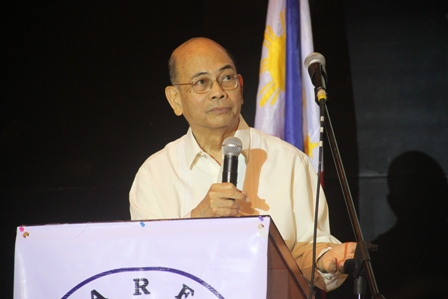
Dr. Bernie Villegas wants the 60/40 Anti-FDI restrictions removed
Whether we like it or not, the current economic provisions explicitly discourage foreign investors from coming in, forcing them to seek out local élites who are expected to put up 60% of the entire financial capital requirements. Are there that many Warren Buffets, Bill Gates, and Carlos Slim Helu-types in the Philippines who can put up the required 60% of any joint venture with large foreign Multinationals? Ultimately, there is a very limited list of people that more often than not has the same family names from which foreign multinationals can choose to find joint-venture partners.
In the current system, only the oligarchs win. Worse, those same oligarchs more often than not just pretend to own 60% of the entire venture, but often milk the foreign investors, essentially causing the foreign partners to front the entire capital, while the local oligarch-partner merely sits pretty, does nothing, acts as a dummy, and is present only to fulfill the paper-requirements of local ownership. The oligarch-partner, however, exacts certain “bribes” from the foreign investor for the local oligarch partner to keep quiet and maintain the charade of the 60/40 partnership.
The situation is extremely skewed against the ordinary working classes and middle classes who depend on employment for livelihood. Simple Law of Supply and Demand means that too many job-seekers fighting over the extremely scarce jobs results in bringing average wages down. Not only is the unemployment situation extremely bad for millions of Filipinos, even Filipinos who are lucky enough to have jobs have salaries that are often too low for them to meet their daily needs. This once again forces them to seek overseas employment at recruitment agencies (usually needing take loans from friends or relatives to pay for recruitment fees) in the hope of landing menial, low-paying jobs abroad which, when converted to pesos, are much higher than the pathetically low salaries they’d earn logically, all with the aim of feeding their entire families.
There’s no way out of it. The Noynoy Aquino administration must definitely amend the constitution to allow for 100% ownership of businesses by Foreign Direct Investors. Everyone else in the region has either already done this or are in the process of putting up such pro-foreign investor provisions. No ifs, no buts. Not later. NOW!
Frankly, economic liberalization in order to create local jobs for Filipinos should have been done 40 years ago!
2. Spreading out development to the regions and decongesting Metro Manila

Evolving Federalism:
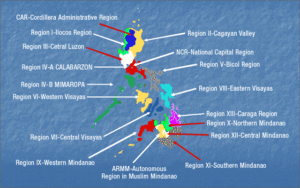 We need to effectively decentralize the territorial administration of the Philippines from centralized-Unitary (“Imperial Manila”-centric) to a more devolved and decentralized system that is based on regions. This should be executed through a principled transitionary evolution from the current paradigm to a newer paradigm of either quasi, semi, or full-Federalism. That way, the jobs and economic opportunities created as a result of Agenda Number 1 on the Three-point CoRRECT™ Agenda do not all go to Imperial Manila, but instead get spread out to the regions and provinces which have long since been neglected.
We need to effectively decentralize the territorial administration of the Philippines from centralized-Unitary (“Imperial Manila”-centric) to a more devolved and decentralized system that is based on regions. This should be executed through a principled transitionary evolution from the current paradigm to a newer paradigm of either quasi, semi, or full-Federalism. That way, the jobs and economic opportunities created as a result of Agenda Number 1 on the Three-point CoRRECT™ Agenda do not all go to Imperial Manila, but instead get spread out to the regions and provinces which have long since been neglected.
Whether we like it or not, the 1987 Constitution is based on an Imperial Manila-centric paradigm of overly-centralized Unitarism. For the Philippines to evolve towards a more decentralized paradigm of territorial administration which gives meaningful autonomy to the regions and allows each region to manage their own regional economies and manage their own fiscal matters by themselves, the Constitution needs to be amended, reformed, and rectified in order to reflect this paradigm shift. While there will invariably be other concerns involved in moves for region-based decentralization, such as culture, language, and perhaps even religion (as in the case of the ARMM), the primary impetus is obviously financial and economic in nature.
Evolving Decentralization chiefly aims to spread economic opportunities across the various regions by putting the onus of economic management & development, fiscal & taxation management, and methods of attracting and enticing local and foreign investors to set up companies and provide jobs for local inhabitants of the various regions on each of the regional governments themselves. Being closer to the local people on the ground, these regional governments will obviously know best how to leverage the specific advantages of their regions and their people.
3. Setting up a stable and efficient political system in order to increase investor confidence
Shift to the Parliamentary System:
“Presidentialism is ineluctably problematic“, as Dr. Juan Linz, PhD would say.
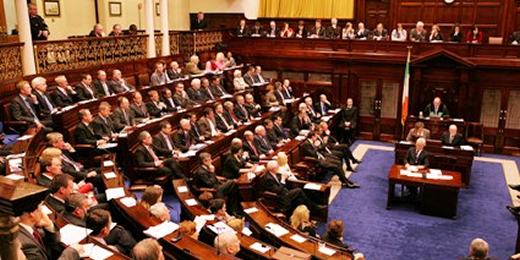
Ireland’s Dail Eireann
Moving to a Parliamentary System will give us a more stable, efficient, accountable, flexible, cheaper to operate, more issues and policies-centric, more party-based, and overall superior system (esp. compared to the faulty and broken presidential system we currently have)that would drastically reduce the chances of the kinds of extra-constitutional disruptions such as rebellion, coups d’etat, military juntas and political assassinations that have plagued far too many Presidential Republics in Africa, Latin America, and Asia. Not only will the Philippines end up with higher quality leadership in a Parliamentary System, the inherent stability found in it very often makes countries that use Parliamentary Systems much more attractive to foreign investors as well as encourages local entrepreneurs and investors to emerge.
Such a shift shall almost instantaneously greatly reduce or outright eliminate the emergence of incompetent Heads of Government who rely chiefly on winnability(a combination of name recall, popularity, patronage, and celebrity-status) as pretty much the singular defining characteristic that propels them to become President in the current system. The presence of such “winnable” presidential candidates has almost always also forced other presidential candidates (including competent ones) running against these winnable incompetents to employ attention-grabbing publicity stunts (such as singing, dancing, or doing karate demonstrations to name a few antics) just to be able to compete for the masses’ attention in the massive and expensive nationwide popularity contest known as the Philippine Presidential Election.
With the emergence of quality leaders to the top posts in the country, the quality of policy & decision-making, as well as the quality of economic planning would have much higher chances of also improving as well.
Unbeknownst to many Filipinos, Parliamentary Systems also feature a check-and-balance system that is far superior to the grid-lock prone and extremely slow and dilatory nature of the separation of the executive and the legislative branches in the presidential system where “veto” or “blocking” is the only means for “checks-and-balance.” Far too many Filipinos and Americans erroneously think that separation-of-powers is the only way to provide checks-and-balances.
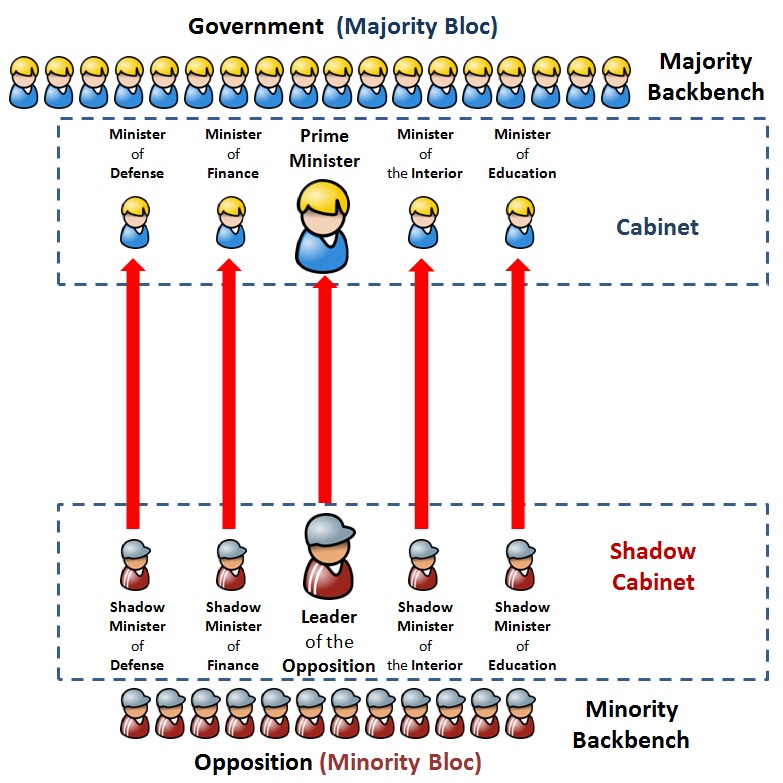
Moreover, Shadow Ministers (called “Opposition Critics” in Canada) do not merely oppose or criticize their administration counterparts. More often than not, they offer constructive alternative advice or point out areas that were most probably missed during Ministry Committee Meetings. Instead of seeking to put down the government, the Opposition can play a constructive role in testing out ideas and proposals and provide better alternative solutions. Once a week, during Question Time, the Opposition Shadow Cabinet has the opportunity to openly criticize the Government administration on areas where they made real mistakes. Oftentimes, the information and data collected by members of the Opposition Shadow Cabinet is exposed if and when the policies of the Government actually do fail.
In a Parliamentary System, the Administration Cabinet aka “The Government” cannot make any decisions that the Opposition Shadow Cabinet are not aware of. It is for this very reason that countries with Parliamentary Systems dominate the top ranks of quality-of-life rankings, transparency and “no corruption”, GDP-per-capita, Human Development, etc.
There is absolutely no doubt based on all the relevant data and objective empirical evidence out there that Parliamentary Systems are hands-down superior in all ways to Presidential Systems.
* * *
It must be stated very clearly to each and every person reading this that the Three-Point Agenda of Constitutional Reform and Rectification for Economic Competitiveness and Transformation was never meant to act as some sort of perfect instantaneous solution that would solve all of the Philippines’ problems in one big bang.
No one clamoring for the old “charter change” or the new movement for “Constitutional Reform” has ever stated that making changes to the constitution would be the “silver bullet” that fixes everything. That as soon as the constitution were changed, poverty would immediately get solved, the Philippines’ GDP per capita would suddenly shoot up, crime and corruption would automatically decrease, and so on and so forth. Not at all. Constitutional Reform, as stated earlier is meant to be an “Enabling Step.” It is simply a step that makes other subsequent solutions easier to accomplish.
 Take fixing a faulty leaking pipe in your house.
Take fixing a faulty leaking pipe in your house.
You may decide to go straight into trying to fix the leak by replacing the faulty pipe with a newer one. Or before doing so, you may decide to use your brains a bit more and go first to the main water supply switch to turn it off and after doing that, you go straight at replacing the faulty pipe.
Technically, you can do the former. However, you will obviously end up taking much longer to replace the pipe and you will also end up getting yourself and your house wet.
Doing the latter, where you start off first with turning off the main water supply, starts off with an enabling step. That enabling step of turning off the main water supply makes your task of changing the faulty pipe much, much easier.
The same goes for improving Philippine Society.
Some people believe that Filipino Character first needs to be changed. That’s easier said than done. People change en masse only when subjected to a changed environment or “system” where the disincentives or certain punishments cause people to avoid certain behavior and are encouraged through rewards towards desired behavior. That, in itself, is a system change. Changing the system to a more appropriate one is therefore more likely to enable changing behavior and ultimately change mindset and culture. Quite often, the inherent features and dynamics of certain systems force the participants within the system to actually change their behavior.
As an example, take the sport of Football. The size of a Football pitch, the existence of goalkeepers, and the inherent rules of Football where ordinary football players may not use their hands, for instance, forces players of football to practice much more teamwork and cooperation in order to be competitive because the sheer size of the pitch does not allow footballers to easily run the entire length of the field. Passing the ball to teammates is necessary to get the ball from one end to the other. Moreover, scoring goals is almost always a team-based effort where a player passes the ball to another in order to score a goal because it is necessary to deceive the goalkeeper through misdirection. Strikers often pretend to score a goal in order to fool the goalie but they almost always pass it on to another teammate at the last nano-second and that teammate scores.
In the game of football, teams are forced to develop teamwork because of the inherent features, qualities, and characteristics of the entire system of the sport of Football. It is thus inaccurate to say that teams must first develop teamwork before playing football. Instead, Football’s very own environment or “system” forces teams to develop teamwork. Those that develop teamwork have higher chances of winning and eventually succeed. Those that do not develop teamwork lose matches and eventually fail.
More and more Filipinos need to start reflecting more on the cause-and-effect relationships of phenomena and how systems work. More and more Filipinos need to step up to do more research as well as knowledge & information-gathering in order to avoid making knee-jerk statements based solely on erroneous pre-conceived notions and biases. Constitutional Reform, like it or not, is a necessary enabling step that must be done.
If it is not done at all, then we will forever find ourselves having difficulty in coming up with the specific solutions to each and every problem that hits us. Sooner or later, we might just wake up to see that all the other countries whom we currently are ahead of, such as Vietnam, Cambodia, Laos, East Timor, and even Myanmar, may have all passed us by because they’d have gotten their acts together, while we Filipinos ignored the need to take that first enabling step of going with CoRRECT™:
Constitutional Reform & Rectification for Economic Competitiveness & Transformation
* * *
* * *
More and more Filipinos support the CoRRECT™ Agenda
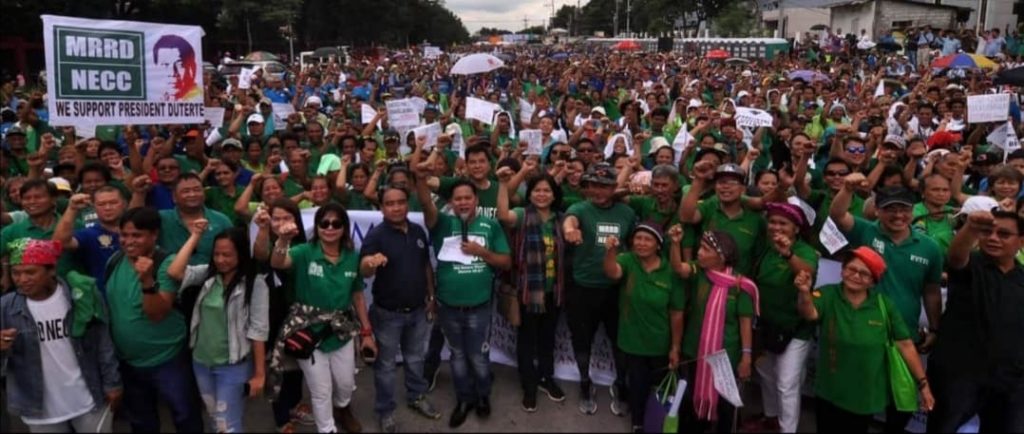
The MRRDC organization supports the CoRRECT™ Three Point Agenda for an FDI-friendly Federal-Parliamentary System
Thanks to the efforts of many veteran “charter change” advocates, including Mrs. Carmen Pedrosa, Dr. José Abueva, and many others, after almost 2 decades of campaigning to make Filipinos exercise their mental faculties and look at what is so obviously wrong with the 1987 Constitution, there already is a snowballing amount of support for the CoRRECT™ Agenda. Constitutional Reform has struck a chord with millions of Filipinos who are affected by unemployment, underemployment, and the OFW phenomenon (which affects far too many as almost every family is directly related to an overseas worker sending money home) as the pseudo-nationalist and Filipino Leftist “anti-Transnational Corporations” and anti-Globalization rhetoric which these frothing-at-the-mouth groups used to sell to the public has been totally discredited. Many ordinary practical-minded working Filipinos who think properly have seen that it is far better to invite Foreign Multinational Companies to the Philippines to create local jobs than to send Filipinos to work in foreign companies in foreign countries.
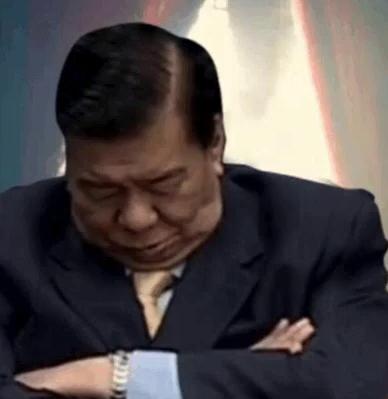
Franklin Drilon is anti-CoRRECT™ because he doesn’t know how a Parliamentary System works
Millions of Filipinos from outside of Imperial Manila, especially those from the Visayas and Mindanao as well as Filipinos from the Cordillera and Bicol regions who feel that their regions have been neglected are strongly supportive of the Decentralist pro-Federalist advocacy that requires Constitutional Reform. Even among people from Imperial Manila itself, their anger at the congestion, extreme traffic problems, proliferation of slums and crime, has led many from the national capital region to see the necessity of decentralizing the country culturally, economically, and in terms of tax collection and budget allocation.
Admittedly, shifting to the Parliamentary System was unfortunately the hardest to sell of the three agenda points in the original “charter change” advocacy. Because understanding it required some seemingly technical and somewhat complex analysis in finding out how a parliamentary system was indeed better, certain vested interests as well as numerous misinformed and ignorant Filipinos who did not care to do the required due diligence and research decided to focus on discrediting the move to a parliamentary system. Owing to the highly dysfunctional Filipino trait of sticking to a “familiar” but flawed status quo instead of making the effort to find a better solution, those self-same vested interests were quite successful in demonizing any proposed shift to the Parliamentary System as being a ploy to extend whichever incumbent president was in power at the time.
Call to Action: Spread the Word!
There are no ifs and no buts about this. Constitutional Reform must happen now. It should have happened long ago. The information and all the data is out there. Must we continue to allow the Philippines to be “Asia’s Basketcase of Wasted Democrazy?”
Perhaps it is time we asked ourselves and our close friends & relatives all the following questions to get all Filipinos thinking more and more about what’s wrong with the Philippine situation and what needs to be done to CoRRECT™ it:
1. ECONOMY:
Why are so many Filipinos poor?
Why are jobs so scarce?
Why are local salaries so low?
Why do so many Filipinos have to find work abroad?
Why are there so many unemployed and underemployed people?
Why did Intel leave the Philippines to move to Vietnam?
Why did Canon choose to set up factories in Vietnam and not in the Philippines?
Why do we have difficulty bringing in foreign investors in when our use of English is cited by these same investors as a major advantage?
Think carefully about all these questions and go to the root of all our “policy documents” that cause our problems and prevent our progress
2. TERRITORIAL ADMINISTRATION:
Why are most well-paying jobs in Imperial Manila forcing provincial residents to have to come to the capital for work, creating over-congestion, squatters, and too many traffic jams in the capital?
Why is it that if you want to watch Taylor Swift or Justin Bieber their concerts are only in Imperial Manila? Why not other cities?
Why is it that if you want to watch a classical concert, it must be in Imperial Manila?
Why is it that what Imperial Manila says goes even if it is oftentimes not appropriate to the culture, language, or unique situation of the different people from the various regions?
What requirement did the MILF tell the Government of the Republic of the Philippines it needed to see happen for the MILF to lay down their arms and bring about Peace in Mindanao?
Why is it that far too many Overseas Filipino Workers are Filipinos who are originally from outside of Imperial Manila?
3. SYSTEM OF GOVERNMENT:
Why does our political system cause only celebrities to have the upper hand, and in case a politician wants to win, he/she needs to do what celebrities do (song-and-dance numbers)?
Why is it so difficult for highly intelligent and highly competent experts to emerge at the top of the leadership of Philippine Government?
Why do we end up with mediocre-quality leadership? And sometimes, even if the leadership is good, why is it so hard for the leaders to do what needs to be done?
Why is the Philippine government so prone to grid-lock?
Why is the Philippine system so prone to coups d’état and other destabilizing moves?
Why is it so difficult to get rid of incompetent leaders or leaders who did not deliver on their promises?
All these questions inevitably lead to the conclusion that the 1987 Constitution has given the Philippines an extremely dysfunctional environment, forcing Filipinos who want a better future for themselves and their loved ones to emigrate to greener pastures. Now that we all see that the 1987 Constitution is flawed, what do we do about it?
Must we wait until the Philippines is decisively overtaken by Vietnam, Laos, Cambodia, East Timor, and Myanmar so that we find ourselves at the absolute bottom of the list of all Southeast Asian countries before we even start fixing our flawed Constitution? Will waiting another decade or so when Filipinos will have reached around 120 million people make any sense?
We need Constitutional Reform & Rectification for Economic Competitiveness &Transformation now!
Don’t be wrong… Support CoRRECT™!
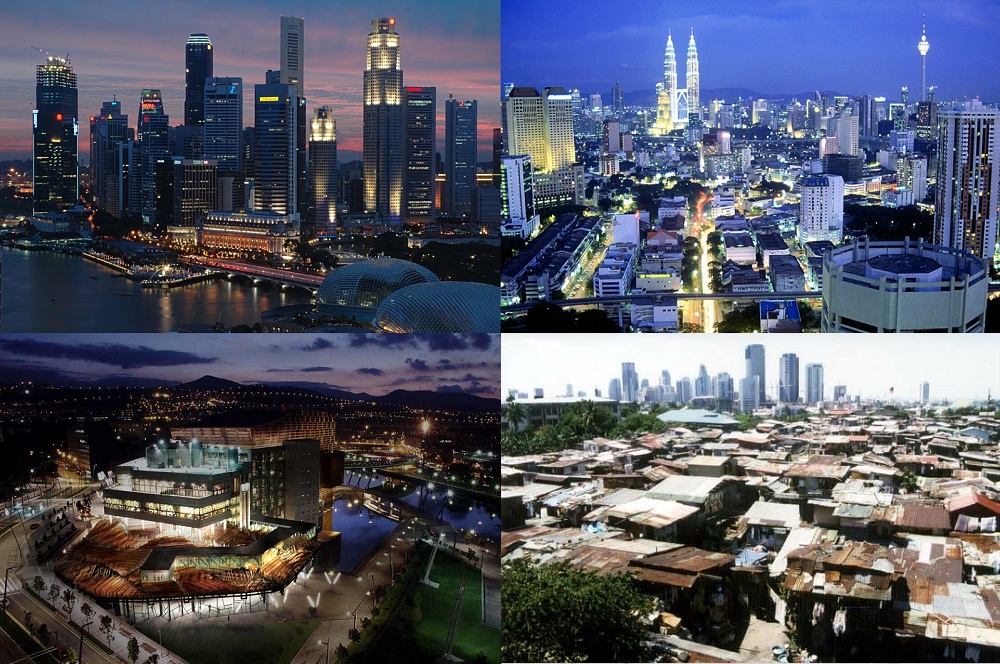
Counter Clockwise from top right: KL-Malaysia, Singapore, Bilbao-Spain, Makati-Philippines; All are Parliamentary; All allow 100% Foreign Ownership of Busineses; Malaysia (Federal) and Spain (Quasi-Federal) are decentralized. The Philippines is Protectionist, Presidential, and Unitary: Kulelat
* * *
* * *
* * *
About the Author
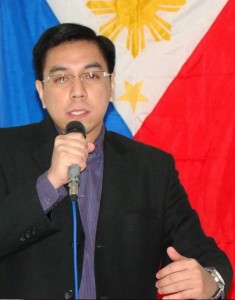 Orion Pérez Dumdum comes from an IT background and analyzes systems the way they should be: logically and objectively.
Orion Pérez Dumdum comes from an IT background and analyzes systems the way they should be: logically and objectively.
Being an Overseas Filipino Worker himself, he has seen firsthand how the dearth of investment – both local and foreign – is the cause of the high unemployment and underemployment that exists in the Philippines as well as the low salaries earned by people who do have jobs. Being Cebuano (half-Cebuano, half-Tagalog), and having lived in Cebu, he is a staunch supporter of Federalism.
Having lived in progressive countries which use parliamentary systems, Orion has seen first hand the difference in the quality of discussions and debates of both systems, finding that while discussions in the Philippines are mostly filled with polemical sophistry often focused on trivial and petty concerns, discussions and debates in the Parliamentary-based countries he’s lived in have often focused on the most practical and most important points.
Orion first achieved fame as one of the most remembered and most impressive among the winners of the popular RPN-9 Quiz Show “Battle of the Brains”, and got a piece he wrote – “The Parable of the Mountain Bike” – featured in Bob Ong’s first bestselling compilation of essays “Bakit Baligtad Magbasa ng Libro ang mga Pilipino?” He is the principal co-founder of the CoRRECT™ Movement to spearhead the campaign to inform the Filipino Public about the urgent need for Constitutional Reform & Rectification for Economic Competitiveness & Transformation.


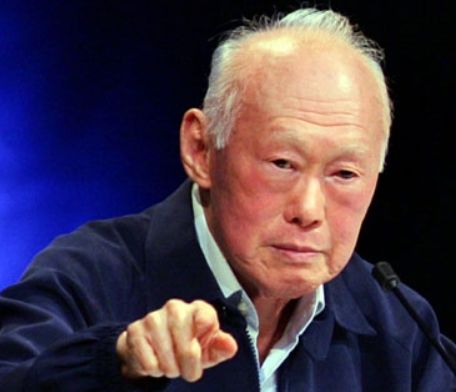
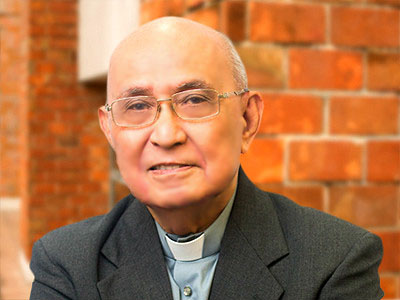
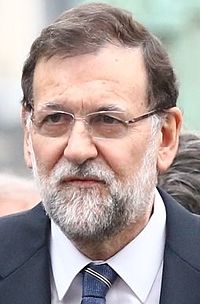
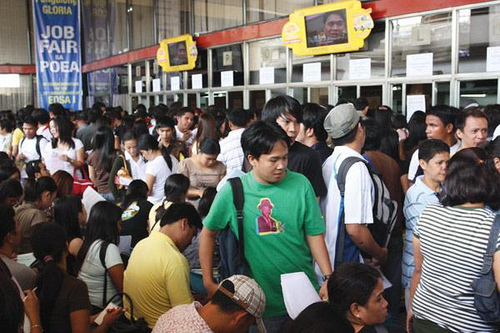

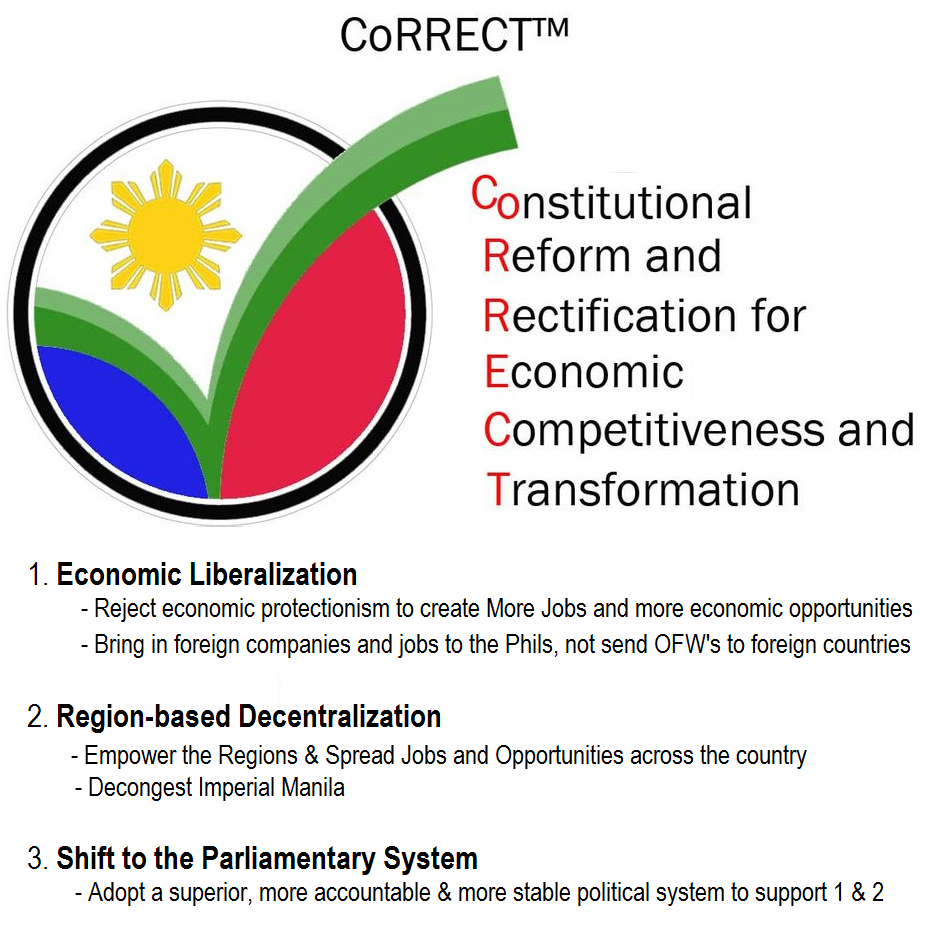

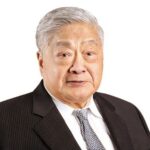



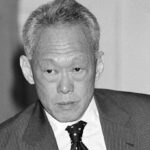
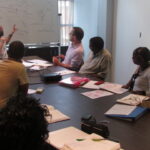


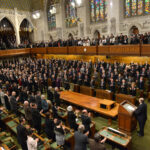


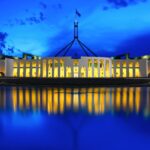

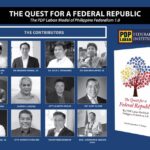





1 Response
[…] 1) http://correctphilippines.org/basketcase […]